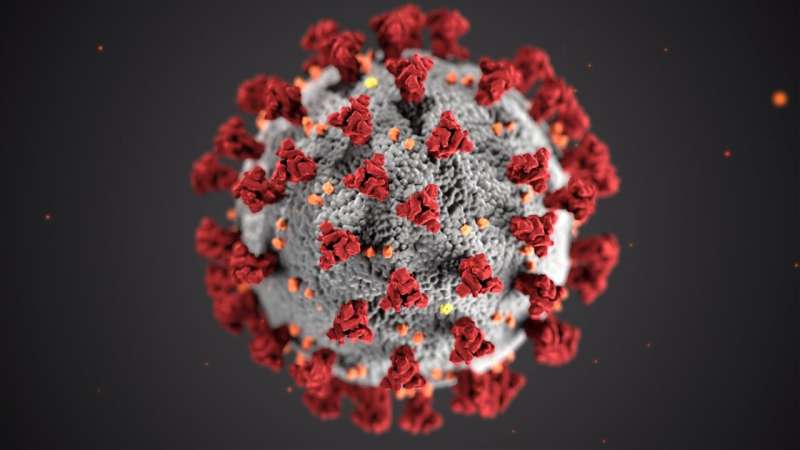Credit: Unsplash/CC0 Public Domain
SARS-CoV-2, the virus that causes COVID-19, attaches to a cellular receptor called angiotensin-converting enzyme 2 (ACE2), and activation of the farnesoid X receptor increases ACE2 expression. New research published in the Journal of Internal Medicine suggests that a drug that inhibits the farnesoid X receptor and is used to treat liver disease may decrease SARS-CoV-2 infections and reduce the severity of COVID-19.
The study ran from March 2020 to February 2022 and included 3,214 patients with liver disease, half of whom were taking the drug, called ursodeoxycholic acid (UDCA). Patients taking UDCA had 46% lower odds of being infected with SARS-CoV-2. Among patients who developed COVID-19, UDCA use was associated with 46% reduced odds of having symptomatic COVID-19, 49% lower odds of having moderate COVID-19, and 52% lower odds of having severe or critical COVID-19.
"Although our findings are hypothesis generating and supplement data in experimental animal and human models, no recommendations on UDCA use in either the prevention or treatment of COVID-19 can be made in the absence of prospective randomized controlled trials," the authors wrote.
More information: Ursodeoxycholic acid is associated with a reduction in SARS-CoV-2 infection and reduced severity of COVID-19 in patients with cirrhosis, Journal of Internal Medicine (2023). DOI: 10.1111/joim.13630
Journal information: Journal of Internal Medicine
Provided by Wiley























